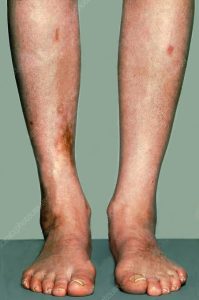ARTICLES
How to Detect Diabetes Without a Blood Test
How to Detect Diabetes Without a Blood Test

Many adults worry about diabetes but put off getting tested because they fear needles, clinics, or medical bills. But here’s the thing — your body often drops clear hints long before you ever see a blood test result.
While a proper diagnosis always needs medical confirmation, there are ways to spot clues that your sugar levels may be out of balance. Learning these warning signs can help you act sooner, make smart changes, and talk to your doctor about what’s happening inside your body. If you’ve ever wondered whether you could detect diabetes without a blood test, start with these signs and signals your body sends.
1. Thirst That Never Seems to End
One of the simplest clues is constant thirst. High blood sugar makes your kidneys flush out excess glucose through urine. This process drains water from your body, leaving you dry and thirsty no matter how much you drink. If you find yourself carrying a water bottle everywhere or waking up at night desperate for a drink, pay attention.
2. Unusual Bathroom Trips
That constant thirst naturally leads to frequent urination. Many adults notice they’re visiting the bathroom much more often — during the day and at night. If you suddenly start waking up multiple times to pee or plan your day around bathroom breaks, it might mean your body is working overtime to clear out sugar.
3. Losing Weight Without Trying
Another telltale clue: dropping pounds without trying. This happens when your body can’t use sugar for fuel and starts burning muscle and fat instead. If your clothes feel looser but you haven’t changed how much you eat, it’s worth asking whether blood sugar could be the cause.
4. Feeling Tired All the Time
Fatigue is a hidden clue that’s easy to dismiss. But when sugar builds up in your blood instead of feeding your cells, your body can’t get the energy it needs. If you feel run-down, sleepy, or struggle to get through normal tasks despite decent sleep, your sugar levels may not be where they should be.
5. Blurry or Changing Vision
High sugar levels pull fluid from the lenses of your eyes, which changes how they focus light. This can make your vision blurry or fuzzy. If you suddenly need to squint to read or can’t see signs clearly, and it comes and goes, your sugar levels might be the hidden reason.
6. Cuts and Bruises That Won’t Heal
Diabetes affects circulation and the body’s natural healing process. A small cut, blister, or scratch that hangs around longer than normal is a red flag. If you notice wounds that stay open for weeks or skin infections that come back again and again, high sugar may be interfering with healing.
7. Tingling or Numbness in Fingers and Toes
High blood sugar can slowly damage the tiny nerves in your hands and feet. This may start as mild tingling, numbness, or a pins-and-needles feeling — especially at night. If you notice this often, it’s a big clue that your blood sugar may have been too high for too long.
8. Recurring Skin Infections or Itchy Patches
Bacteria and yeast love sugar. When sugar levels stay high, infections can show up more often. Some people get frequent fungal infections between fingers and toes, or rashes in warm, moist areas. Women may notice more yeast infections, and men might notice redness or irritation under skin folds.
9. Fruity Breath Smell
When the body can’t use sugar, it breaks down fat for energy. This creates ketones — chemicals that can make your breath smell sweet or fruity. If you or someone close notices this unusual smell, especially along with nausea or vomiting, get medical help. It can signal a dangerous state called diabetic ketoacidosis.
10. Sudden Changes in Appetite
Diabetes can mess with how hungry you feel. Some adults notice constant hunger that never goes away, even after eating. Others might feel full too fast or lose interest in food altogether. A sudden spike in appetite along with unexplained weight loss is worth paying attention to.
11. Dark Patches of Skin
One overlooked clue is dark, velvety patches that appear on the neck, armpits, or groin. This condition, called acanthosis nigricans, is common in people with insulin resistance — a stage that often comes before type 2 diabetes. If you see these patches and can’t explain them, it’s worth checking your sugar levels.
12. Mood Changes and Brain Fog
Blood sugar swings can cloud your thinking and shift your mood fast. Some adults feel unusually irritable or anxious. Others struggle to focus or find words. If these mental shifts come alongside physical signs like thirst and tiredness, diabetes may be behind it.
13. Paying Attention to Family History
One more way to detect diabetes risk without a test: check your family tree. If your parents, siblings, or grandparents had diabetes, your odds are higher too. Combine family history with symptoms — even mild ones — and you have a strong reason to get checked.
What to Do Next
Spotting signs early gives you power to make changes before serious problems start. Here’s how to take action:
- Track your symptoms. Write down what you feel, how often, and when it happens.
- Make lifestyle tweaks. Eating balanced meals, moving daily, and cutting sugary drinks can help control sugar naturally.
- Get a check-up. If you see multiple signs, don’t rely on symptoms alone. A simple blood test confirms what’s happening.
ALSO READ: Early Symptoms of Diabetes in Adults: What to Watch Out For Before It’s Too Late
Discover more from 9jaPolyTv
Subscribe to get the latest posts sent to your email.

 EDUCATION18 hours ago
EDUCATION18 hours agoMTN Foundation ICT and Business Skills Training Phase 6 for Young Nigerian Entrepreneurs (₦90 Million Equipment Grant Available)

 POLYTECHNIC NEWS24 hours ago
POLYTECHNIC NEWS24 hours agoFrom Stage to Screen: Nupe Students Wow at Cultural Day (See Stunning Photos)

 NEWS18 hours ago
NEWS18 hours agoFG inaugurates programme to empower 20million youths

 EDUCATION19 hours ago
EDUCATION19 hours agoFully Funded Opportunity: Apply for the U.S. Department of State Professional Fellows Program 2025

 EDUCATION18 hours ago
EDUCATION18 hours agoFG to disburse interest-free loans to small businesses, farmers – Coordinator

 EDUCATION18 hours ago
EDUCATION18 hours agoLecturers reject FG’s loan, demand payment of outstanding arrears

 EDUCATION18 hours ago
EDUCATION18 hours agoCall for Applications: Federal Government Creative Economy Development Fund (CEDF) 2025

 EDUCATION18 hours ago
EDUCATION18 hours agoCall for Applications: FCMB-FMO AgriTech Investment Readiness Program 2025




































